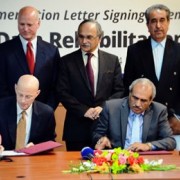
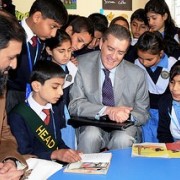
The United States and Pakistan launched the Pakistan Reading Project today, marking the beginning of a five year, $160 million investment in reading education in Pakistan. Funded through the U.S. Agency for International Development (USAID), the project will improve the reading skills of 3.2 million children across Pakistan, build the capacity of 94,000 primary school teachers, and provide over 6,000 scholarships to train aspiring teachers.
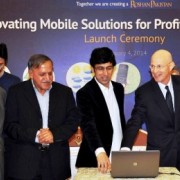
The United States, through the U.S. Agency for International Development (USAID), launched a new pilot project to introduce mobile enabled advisory and financial services for peach and potato farmers and fishermen in Swat, Khyber Pakhtunkhwa.
As a result of this project, over 1,700 small and medium sized farms and 15,000 people in Swat will gain access to mobile banking. With information and financing more readily available, farmers can learn practices to increase their crop yields, gain increased access to markets, and conduct efficient and safe financial transactions.
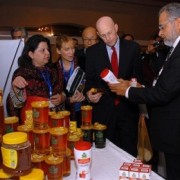
The United States, through the U.S. Agency for International Development’s (USAID) Entrepreneurs Project, has trained 24,000 small business owners in the field of medicinal plants and honey. The Medicinal and Aromatic Plants and Honey Industry conference on February 3 featured discussions aimed at developing the medicinal plant and honey sector in Pakistan. Plant collectors and bee-keepers discussed business opportunities with buyers and service providers.
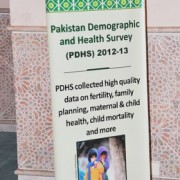
Ambassador Richard Olson attended the release of Pakistan's National Institute for Population Studies Demographic and Health Survey (PDHS) for 2012-13 at a ceremony at the Serena Hotel in Islamabad. State Minister for National Health Services, Regulation and Coordination Saira Afzal Tarar was also present at the event.








Comment
Make a general inquiry or suggest an improvement.